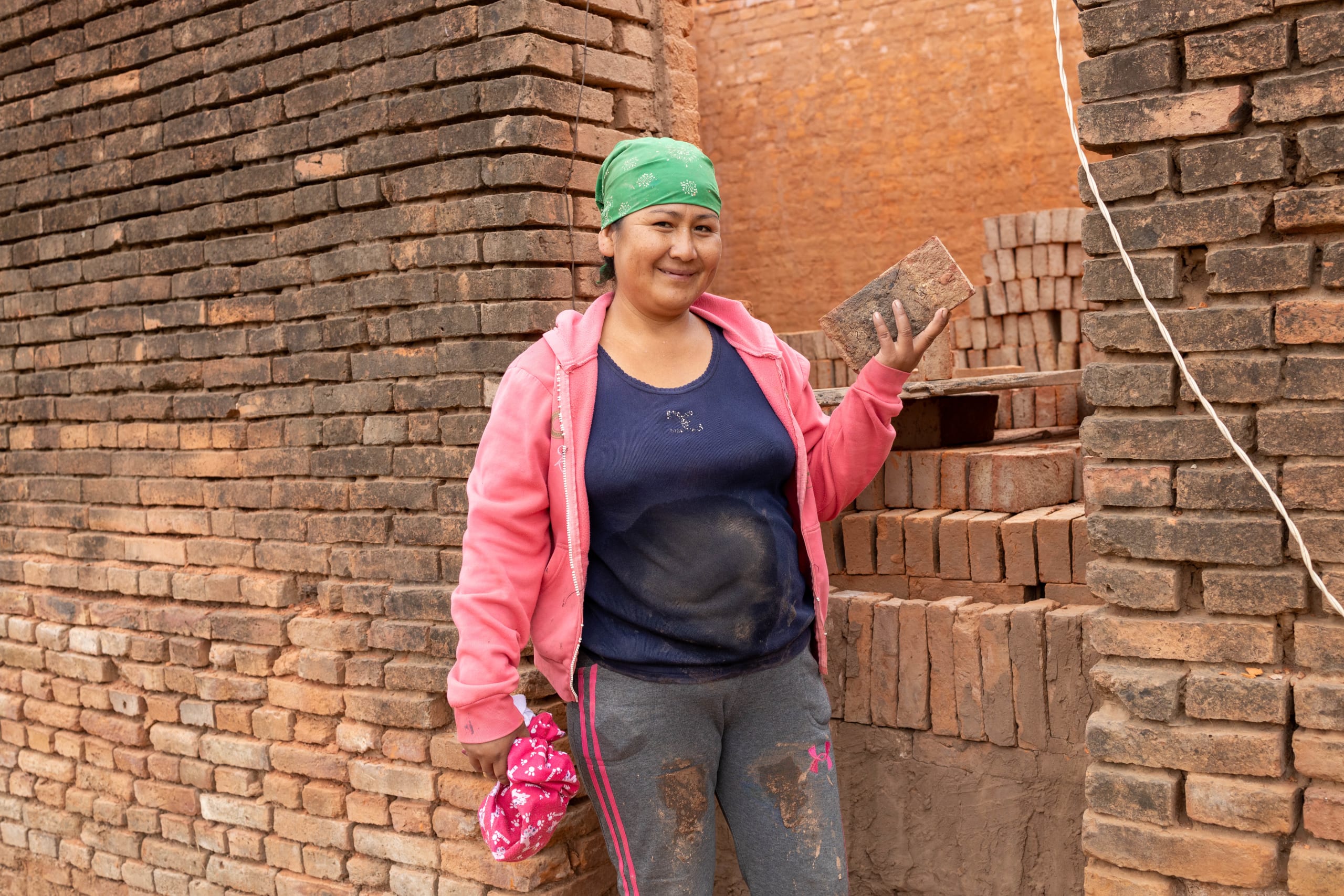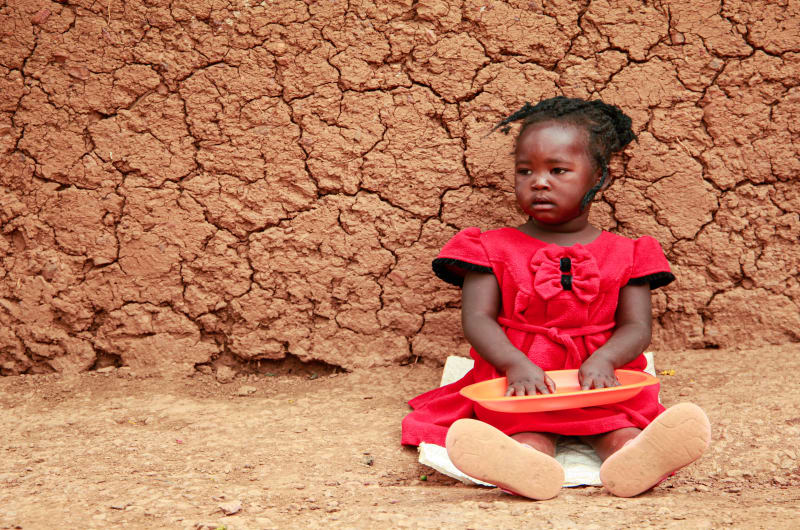In the face of hardship, discrimination and poverty, five fearless Bolivian women are defying conventions and challenging stereotypes by thriving in unexpected occupations for females—a bricklayer, a taxi driver, a mine guard, a carpenter and a brickmaker. This International Women’s Day, we want to champion these women and all the women they represent who are working hard to make new paths for their children.
Many mothers of children in Compassion’s program face immense obstacles and urgently need to work to provide for their families. These women are challenging the norms in Bolivia’s workforce, navigating prejudice and inspiring other women and their children to be courageous and resilient.
Let’s meet the five hard-working women who inspire us…
Rosemary, the fearless taxi driver
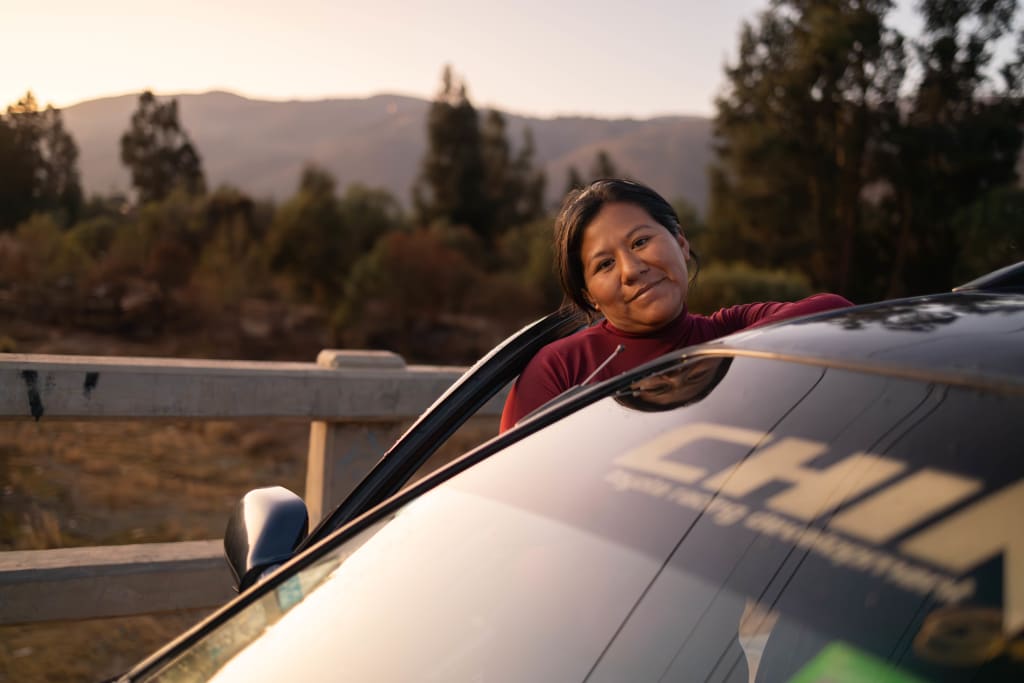
Rosemary has been driving a taxi since she was 21 years old. She is now 31.
The sun has set, and the temperature has lowered. With her hands on the wheel, Rosemary prays for protection during her shift.
While having fun learning to drive in her brother’s car, Rosemary never imagined that this skill would be essential to generating income. But since she was 21 years old, driving a taxi has been one of her primary economic sources.
A decade later, Rosemary still drives a taxi, mainly to provide for her seven-year-old son, Alexander.
She’s the only breadwinner for her children—a common situation in Bolivia. In fact, 82% of single-parent families are led by mothers.
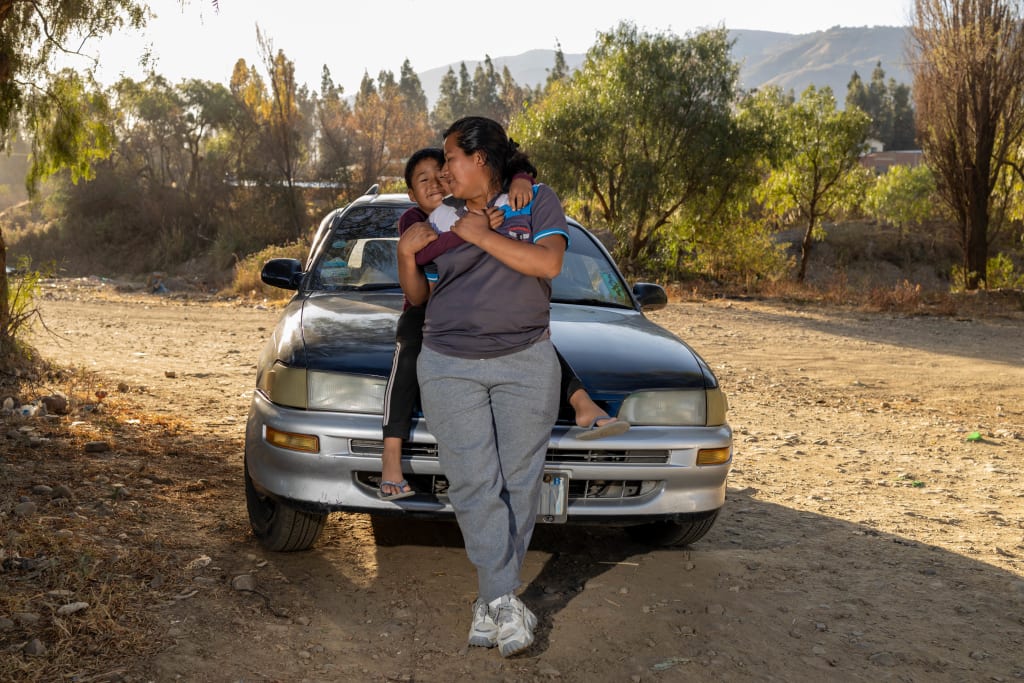
Alexander likes to spend time with his mom, Rosemary.
To spend time with her son, help him do his homework, pick him up from school and cook for him, Rosemary takes the taxi shift from 6 p.m. until 4 a.m.
“I work during that time, also from 7 to 10 in the morning, so that I can be with my child during the day. At night, he stays with my mother. There are risks working at night, but I’m not afraid,” she says.
During that night shift, Rosemary is exposed to danger, especially on the weekends.
She says, “There are only a few women taxi drivers in this community. We must be five at the most. It’s risky work for both men and women. I pray nothing will happen to me.”
Alexander is thankful for the time he gets to spend with his mother. Sometimes, during the day, he even enjoys being his mother’s copilot in the taxi.
“My mother is good. Every day, she goes to work, and when she arrives home, she is exhausted. She can feed me and give me my school snacks with what she earns. Sometimes, I help clean and organize the room so she can rest,” says Alexander.
Elena, the caregiving carpenter
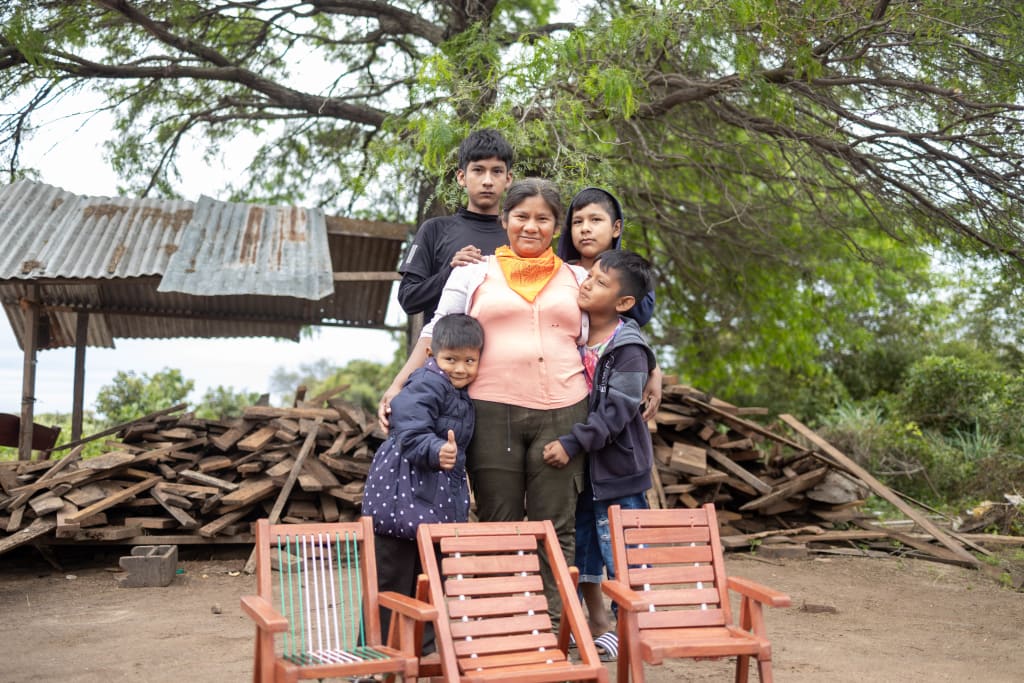
Elena stands with her children and three of the chairs she made.
With sawdust in her hair and splinters in her hands, Elena pauses the wood cutting and smiles at her husband, Hipolito, who taught her his trade. Hipolito has been significantly affected by diabetes in recent years and can no longer work as he once did.
“He gets very sick. Once he even said goodbye to us. I cried very much because we’ve been together for 28 years. Thanks to the Lord, he is still here,” says Elena.
Hipolito says his health struggles have forced him to think of the future differently.
“When one gets sick, one thinks about many things, but the first thing I did was to prepare my wife so she could be independent. I was thinking of my children, who are still young. Also, I was worried that my wife would have to look for work from one place to another because people discriminate,” he says.
So, since that moment five years ago, Elena has worked in carpentry and is the main provider for her five youngest children and husband. Hipolito worked in carpentry for around 20 years, so he is passing on his knowledge to her and the children.
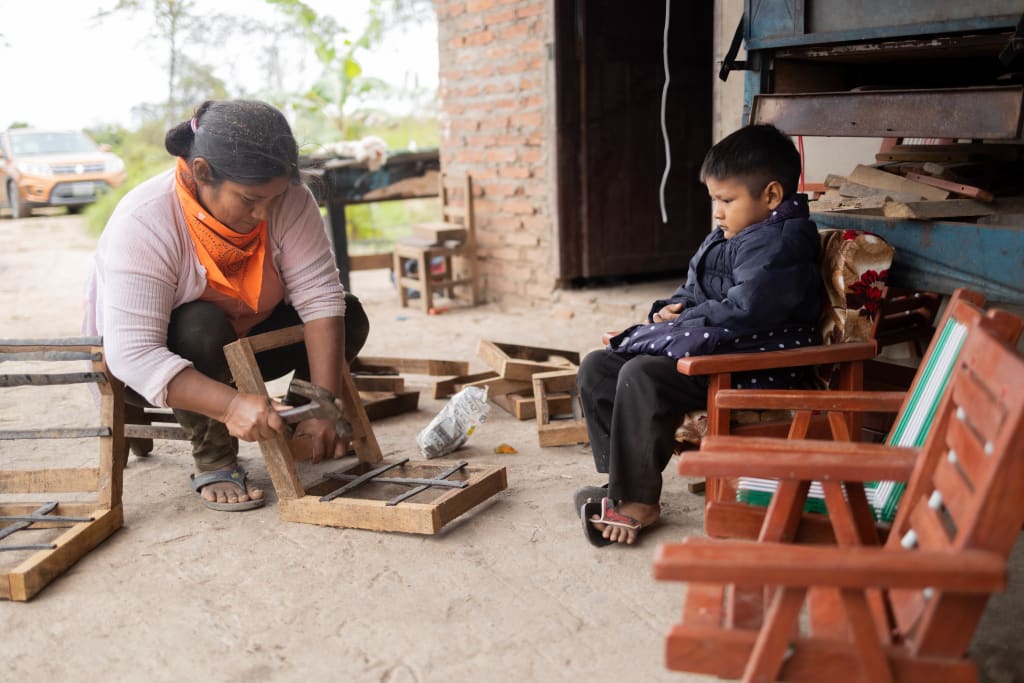
Elena’s son, Juan, is in the Compassion program, where he has been supported with food, school materials and more. He loves to watch his mom work.
The primary type of furniture Elena makes is chairs and couches for children.
“Once I receive the wood, I measure, cut and sand it. I also cut the rubber or cloth with which I do the upholstery, assemble the structures and then re-cover them. For other models, I paint and varnish,” says Elena. “Then, every Sunday, I go to the town’s fair to sell them.”
Hipolito is a very proud husband and is always ready to help her and give her advice.
“I feel very proud of my wife that she learned to do carpentry,” says Hipolito. “Not only that, but last year when we just moved here, and the house wasn’t finished, she learned construction! She built this house.” Elena dreams that her children can study and work; she doesn’t want them to struggle with work or suffer. She is happy that her children are encouraged to do that at the centre.
Elena’s son Juan and his siblings are also learning from their mother’s strong example. She works very hard, is full of love for her family and is always looking to learn new skills.
“My mother is brave and hard-working,” says Juan.
While Elena is worried about her husband’s health, she knows she will always have the support of a loving church—and the strength and skills to provide for her family.
Ruliana, the young bricklayer
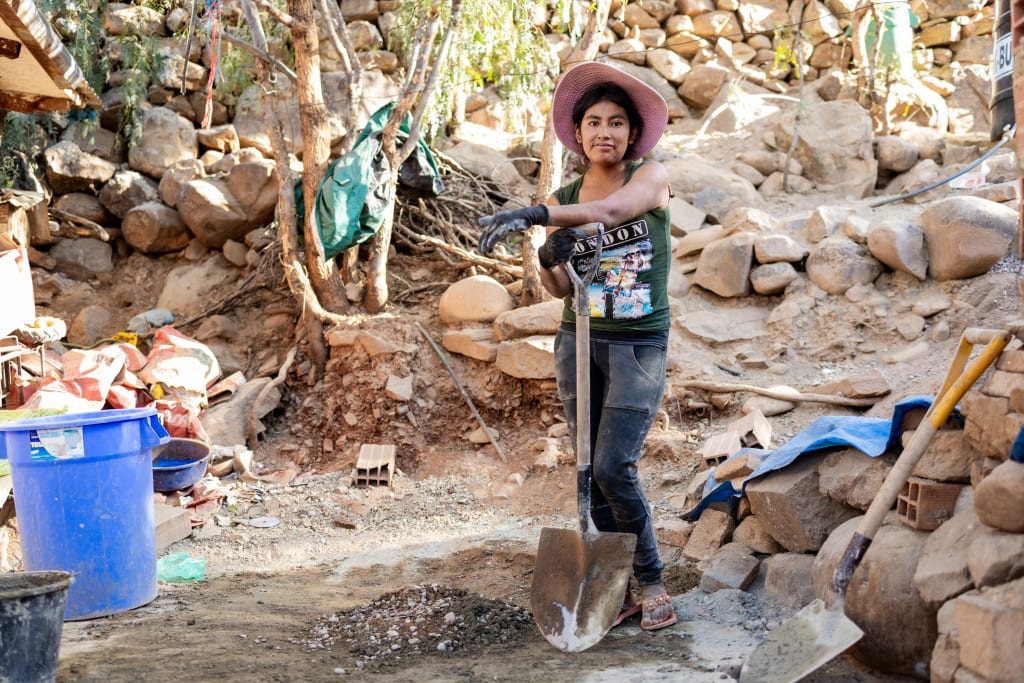
Ruliana is a 23-year-old mother who works as a bricklayer. She is standing at a worksite posing with a shovel.
Ruliana is a 23-year-old mother of two young daughters, aged two and five. She used to work cooking for a small restaurant, but when the COVID-19 pandemic started, she began helping her husband as a bricklayer.
“I’m happy my wife can help me. She is hard-working. She is a good help,” says Alvaro, her husband.
Ruliana admits she is still learning, and the work isn’t easy, but she always does it joyfully.
“This work is hard, heavy and exhausting. I don’t know other women who work as bricklayers. I only met women who make gypsum. But I still like to learn and work,” she says.
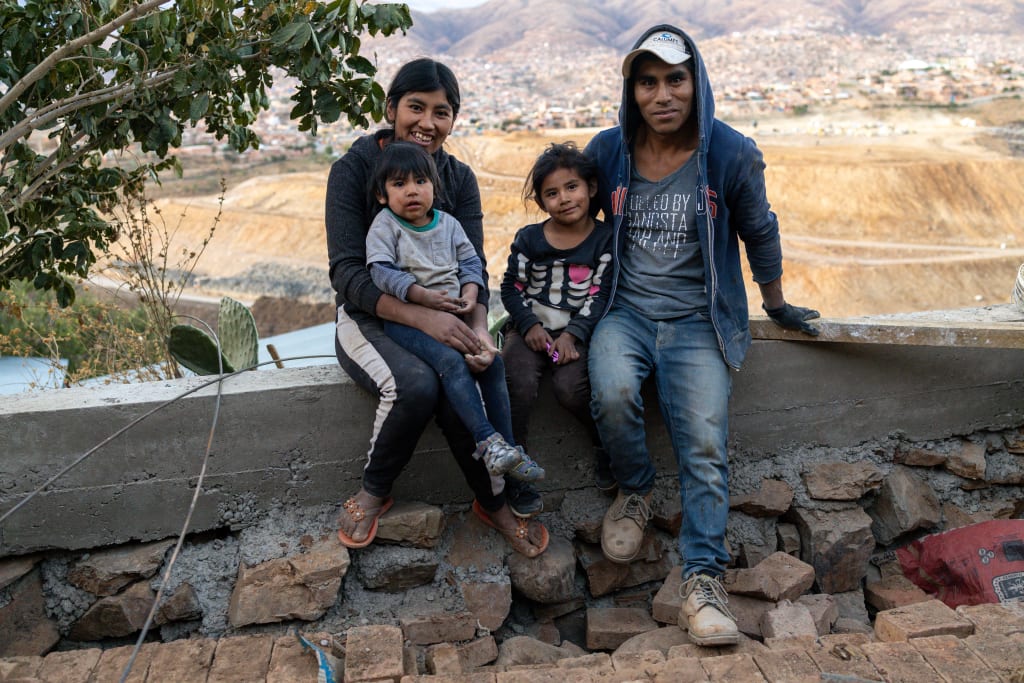
Ruliana works as a bricklayer with her husband. They have two daughters.
According to national statistics, only 48% of women in Bolivia are remunerated for their work. Ruliana occasionally receives a payment, depending on their contract type, but otherwise, she is part of the percentage of women whose work is not paid. But she continues to work to help her husband complete contracts, which helps their family generate more income.
As well as her daily labour on the construction site, Ruliana is caring for her children and maintaining the home.
“I wake up early to cook before going to work. I like to cook. My husband likes what I prepare. I want to study pastry making or hairdressing in the future,” says Ruliana.
This joyful, young, solid mother who is not afraid of challenges may one day be preparing dough instead of mortar.
Susana, the tireless mine guard
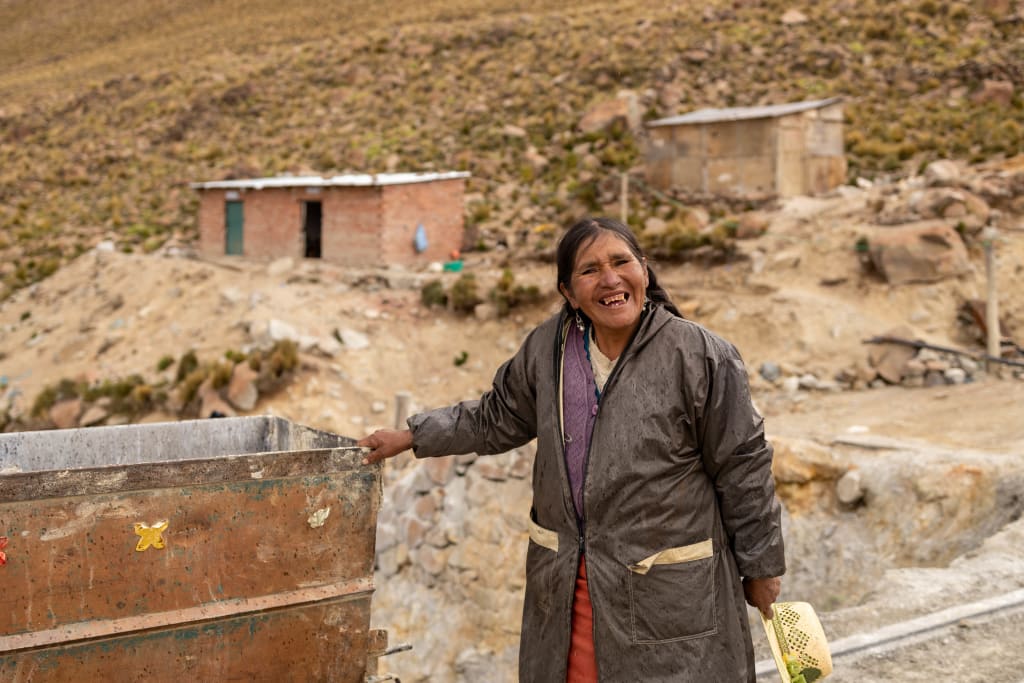
The mine where Susana works is located over one hour away from the city.
Susana is responsible for guarding the tractors and machines used in the mine. The quarry she guards is two hours from Potosi, a high plateau city in Bolivia.
“I like being here; I don’t get scared. There are many robbers. When I see them, I call the guards from other mines. It’s hard and dangerous work, but I need to work. I worry for my children in case I can’t find a job,” says Susana.
Susana is over 50 years old, and in Bolivia, it’s very difficult to find a job as a woman at that age.Due to this difficulty, Susana accepted this job away from the city and her oldest children. She can only leave the mine once a month. She has been at this job for over a year and earns less than the minimum wage.
Susana had 11 children; one baby passed away, and her eight oldest children are grown up and making their way. She still cares for her youngest two, including Iver, who is a participant at the local Compassion centre.
“I help my mother cook sometimes. My mother’s job is exhausting, so I help her,” says Iver.
Janeth, the perseverant brickmaker
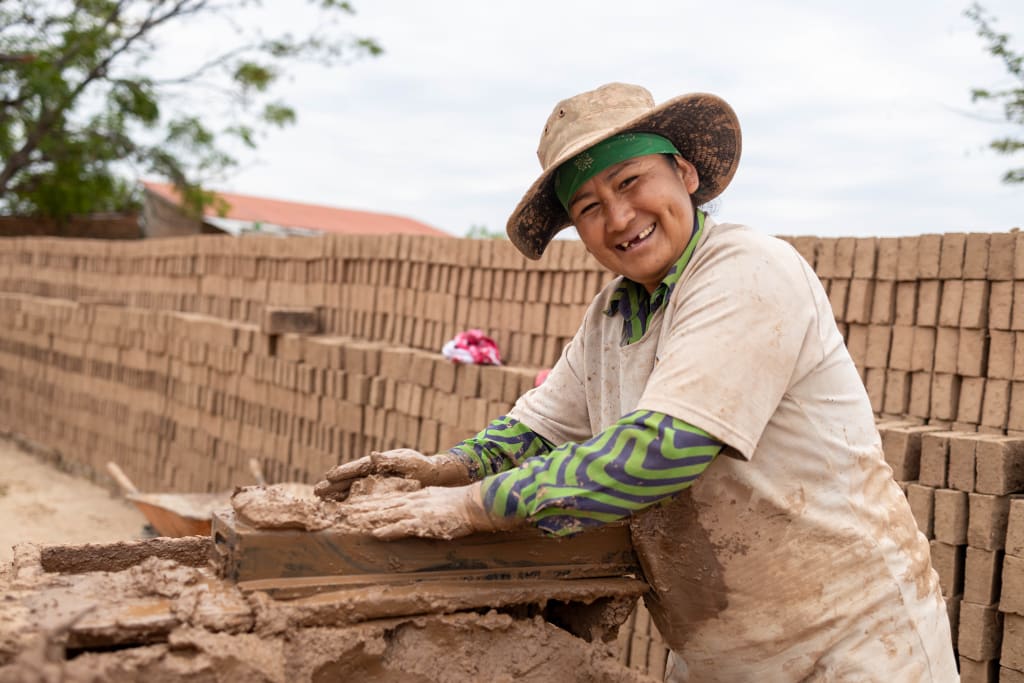
Janeth smiles while she makes bricks.
Mud on the hands, mud on the arms and even on the feet and face. Janeth is coated from head to toe, even on her clothes and shoes, because she spends her days making bricks.
Janeth had five children. Two passed away, and the oldest now studies in another town, while the youngest two still live with her and her husband. These parents work hard to provide a brighter future for their children.
Making bricks involves a long process before the workers get paid, and Janeth is paid according to the quantity of bricks she makes each day.
To begin the work, with the help of machinery, she and the other workers dig big holes to get the soil. Then, it’s taken to a pool made of mud to mix with water, sawdust or rice peel, depending on who prepares it. All these ingredients are combined for around six hours. Finally, the mud is ready to start making the bricks.
Before making the bricks, the land where they are laid to dry has to be well-leveled, smooth and covered with sand.
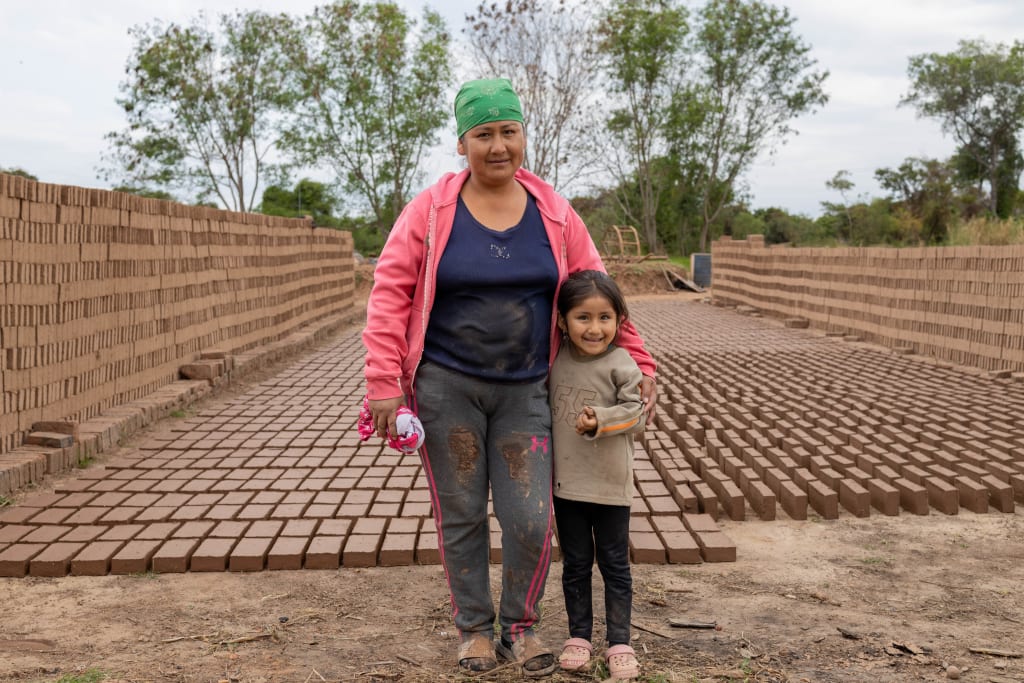
Janeth is standing with her daughter Kimey. There are rows of bricks that Janeth made on the ground behind them.
“I work from six to six; I take a short break before noon to cook lunch and feed my children. After dinner, my husband goes back to turn over the bricks so they can dry. He works until 10 p.m. while I put the children to sleep,” says Janeth.
Finally, the brick cutting starts. Janeth makes around 1,000 bricks a day. Between her husband and her, they make about 2,500 bricks or more a day.
Recently, for an entire year, Janeth went through the whole process of brickmaking alone because her husband was badly injured and unable to work. That included cooking the bricks, classifying them and sending them to be sold in a truck. Thankfully, Janeth also receives support from the local Compassion centre, where her youngest daughter, Kimey, has been a participant in the program since she was one week old.
“I’m thankful for the centre’s support with food baskets, especially when my child was in Survival and my husband wasn’t working,” says Janeth.
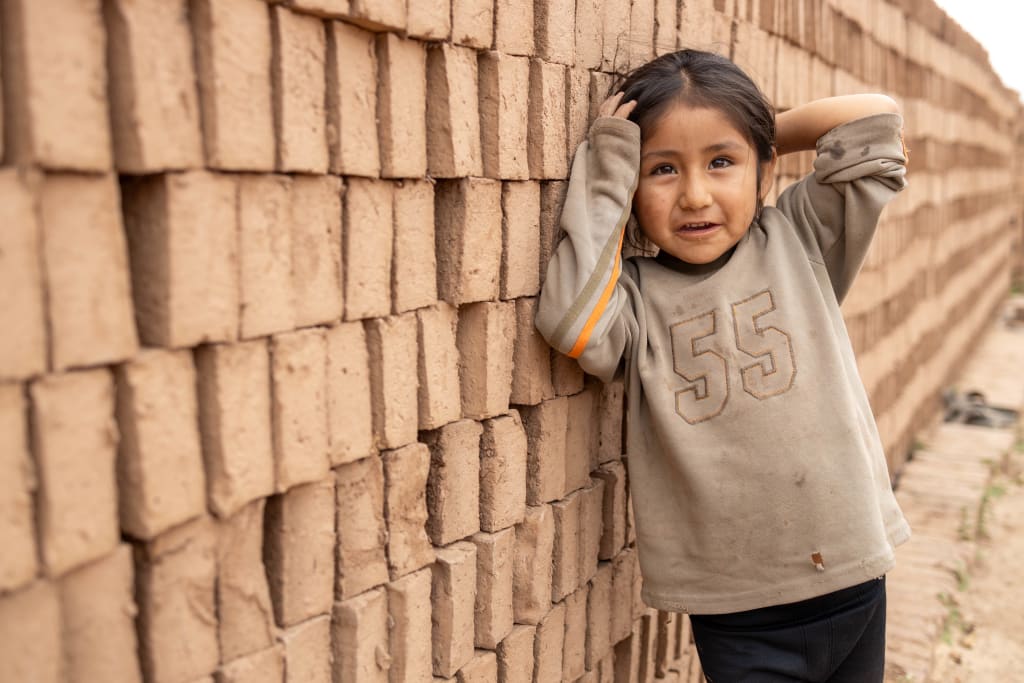
Kimey often comes to watch her mother work. She has a mother who is modeling hard work, perseverance and courage.
These brave Bolivian women have struggled daily to make a way for their families, sometimes even placing their lives at risk for their children. They inspire us with their strength, perseverance and love.
Thanks to Compassion’s program, they also know that they are not alone, and that the church is always there to support and champion them.
This International Women’s Day, you can champion a woman in poverty.
Come alongside a mother to create a brighter future for their children.
Photos by Galia Oropeza. Words by Galia Oropeza, with Rebekah Malbrecht.

